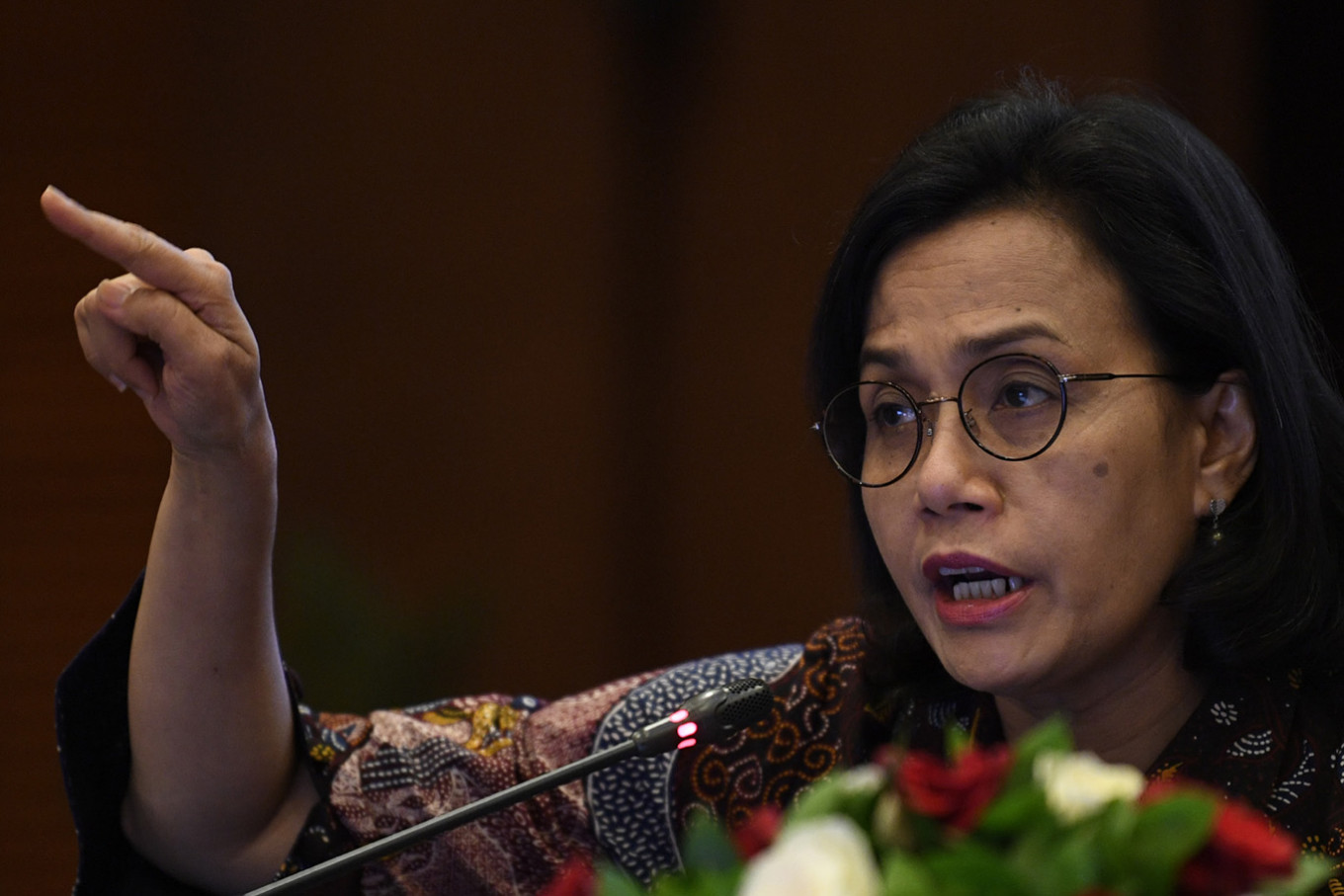Popular Reads
Top Results
Can't find what you're looking for?
View all search resultsPopular Reads
Top Results
Can't find what you're looking for?
View all search resultsIndonesia prepares additional measures to stabilize markets, halt tax payments amid virus risks
Financial authorities will guard the bond market to follow its fundamental value, Finance Minister Sri Mulyani Indrawati said on Tuesday, adding that the current circumstances had led to irrational market behavior.
Change text size
Gift Premium Articles
to Anyone
I
ndonesia is preparing measures similar to those made during the 2008 global financial crisis, including buying back government bonds and halting income tax, to restore confidence in the financial markets and soften the economic impacts of COVID-19.
Financial authorities will guard the bond market to follow its fundamental value, Finance Minister Sri Mulyani Indrawati said on Tuesday, adding that the current circumstances had led to irrational market behavior.
“We have created a framework for bond stabilization to calm the market while Bank Indonesia also bought government bonds in the secondary market,” Sri Mulyani told reporters. “This will prevent excessive profit-taking and speculation during this unusual situation.”
Sri Mulyani said the recent dive in global markets as a result of plunging oil prices following a disagreement between oil giants Saudi Arabia and Russia and heightened COVID-19 fears had been extraordinary. Therefore, the government will move to prevent these sentiments from hurting Indonesia’s economy, she added.
“Our monetary and fiscal authorities are working together, just like in 2008, to restore market confidence and rationality,” Sri Mulyani said.
Read also: Indonesia finalizes second stimulus package to support trade amid virus fears
In February, foreign investors sold Rp 33.6 trillion (US$2.36 billion) in Indonesian stocks and bonds, as $5 trillion was wiped off stock markets around the world.
On Monday, the Jakarta Composite Index (JCI) plunged 6.58 percent and closed the day at 5,136.81 points, the lowest level since December 2016. It has lost 18.46 percent of its value year-to-date.
The Financial Services Authority (OJK) has allowed listed companies to buy back their shares at up to 20 percent of their paid-up capital without a prior shareholders’ meeting in an effort to ease market volatility.
“This is as an effort to stimulate the economy and reduce the impact of the significantly fluctuating market,” the OJK said in a statement issued after Monday’s trading session closed in the red.
Read also: Another stimulus package prepared for manufacturing industry as coronavirus spreads
Sri Mulyani said the government was also planning to delay individual and corporate income tax collection to stimulate the economy.
“Based on our experience in 2008, we have prepared a mechanism for individual [and corporate] income tax, including how long it will be effective and for which sectors.”
The International Monetary Fund called on governments worldwide on Monday to join forces and roll out aggressive financial support for the coronavirus-infected global economy, including direct payments to workers and businesses.
Given the "acute shocks" caused to economies, consumers and businesses, IMF chief economist Gita Gopinath said, "policymakers will need to implement substantial targeted fiscal, monetary and financial market measures to help affected households and businesses".
The measures could include "cash transfers, wage subsidies and tax relief" as well as interest rate cuts and financial market support by central banks, she added.
The IMF has warned that the impact of the COVID-19 outbreak would slow growth in the world economy to below the 2.9 percent posted last year.
IMF chief Kristalina Georgieva said last week that the epidemic "is no longer a regional issue, it is a global problem calling for global response".
The government announced on Tuesday that at least 27 individuals had tested positive for COVID-19 in Indonesia. The virus has shuttered factories, disrupted travel, delayed conferences and sporting events and infected more than 114,000 people worldwide. More than 4,000 people have died.
The government has also announced a Rp 10.3 trillion fiscal stimulus package to fight the economic impact of the outbreak. A second stimulus package includes easier import procedures and more tax breaks to support the manufacturing industry and trade already in the pipeline.
Bank Central Asia (BCA) chief economist David Sumual said fiscal measures were “more important” than monetary measures taken by the central bank to fight the virus’ effects.
“The plan to delay corporate income tax collection will give firms the flexibility to cope with the coronavirus,” David told The Jakarta Post over a phone interview. “But we need more fiscal incentives to maintain customers’ purchasing power.”
David said the government should opt to raise the threshold of non-taxable income, similar to a move made in 2008, to boost consumer spending, adding that the central bank’s decision to lower the reserve requirement ratios was “more effective for banks than lowering interest rate”.
“While it is not directly used to provide loans, the money could be used to buy government bonds to help stimulate weakening fiscal conditions.”










